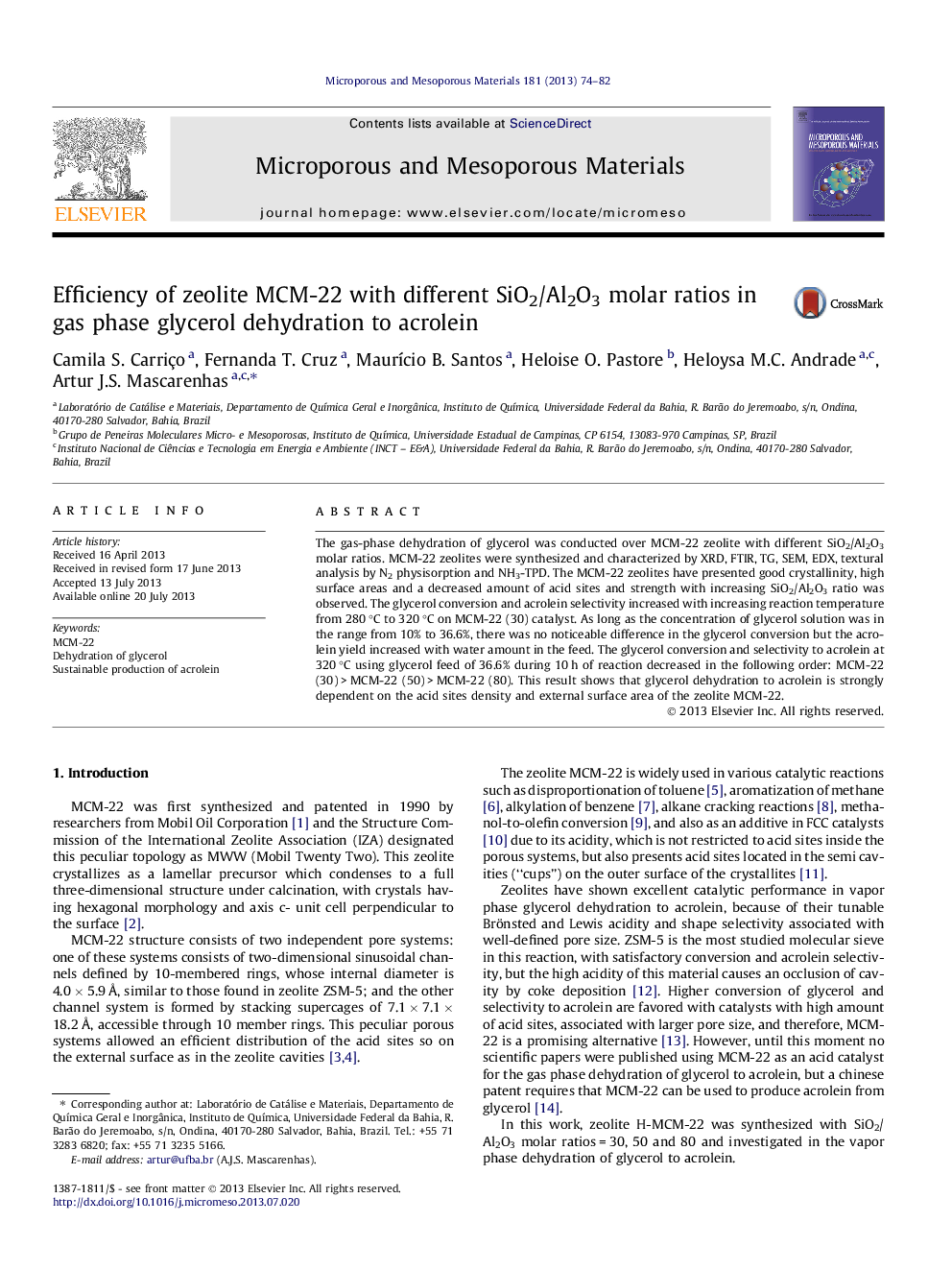| کد مقاله | کد نشریه | سال انتشار | مقاله انگلیسی | نسخه تمام متن |
|---|---|---|---|---|
| 73335 | 49055 | 2013 | 9 صفحه PDF | دانلود رایگان |

• MCM-22 zeolite is a highly active and selective catalyst in the gas phase dehydration of glycerol to acrolein.
• Glycerol conversion and acrolein selectivity is strongly dependent on the SiO2/Al2O3 molar ratio.
• MCM-22 (SiO2/Al2O3 = 30) has shown the best conversion and selectivity.
• Acid and textural properties role an important play in understanding catalytic performance of this zeolite.
• MCM-22 catalysts deactivate by coke formation, but can be regenerated by burning in oxidative atmosphere.
The gas-phase dehydration of glycerol was conducted over MCM-22 zeolite with different SiO2/Al2O3 molar ratios. MCM-22 zeolites were synthesized and characterized by XRD, FTIR, TG, SEM, EDX, textural analysis by N2 physisorption and NH3-TPD. The MCM-22 zeolites have presented good crystallinity, high surface areas and a decreased amount of acid sites and strength with increasing SiO2/Al2O3 ratio was observed. The glycerol conversion and acrolein selectivity increased with increasing reaction temperature from 280 °C to 320 °C on MCM-22 (30) catalyst. As long as the concentration of glycerol solution was in the range from 10% to 36.6%, there was no noticeable difference in the glycerol conversion but the acrolein yield increased with water amount in the feed. The glycerol conversion and selectivity to acrolein at 320 °C using glycerol feed of 36.6% during 10 h of reaction decreased in the following order: MCM-22 (30) > MCM-22 (50) > MCM-22 (80). This result shows that glycerol dehydration to acrolein is strongly dependent on the acid sites density and external surface area of the zeolite MCM-22.
Figure optionsDownload as PowerPoint slide
Journal: Microporous and Mesoporous Materials - Volume 181, 15 November 2013, Pages 74–82